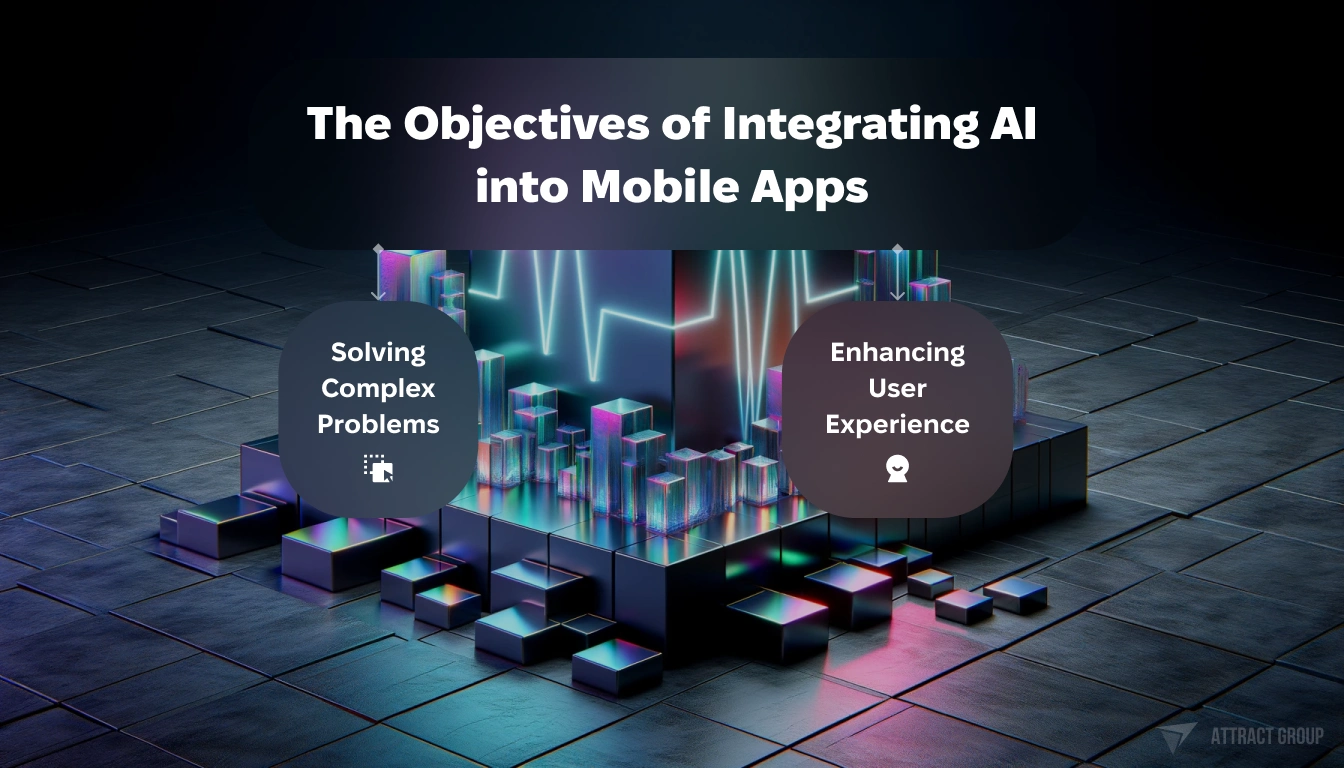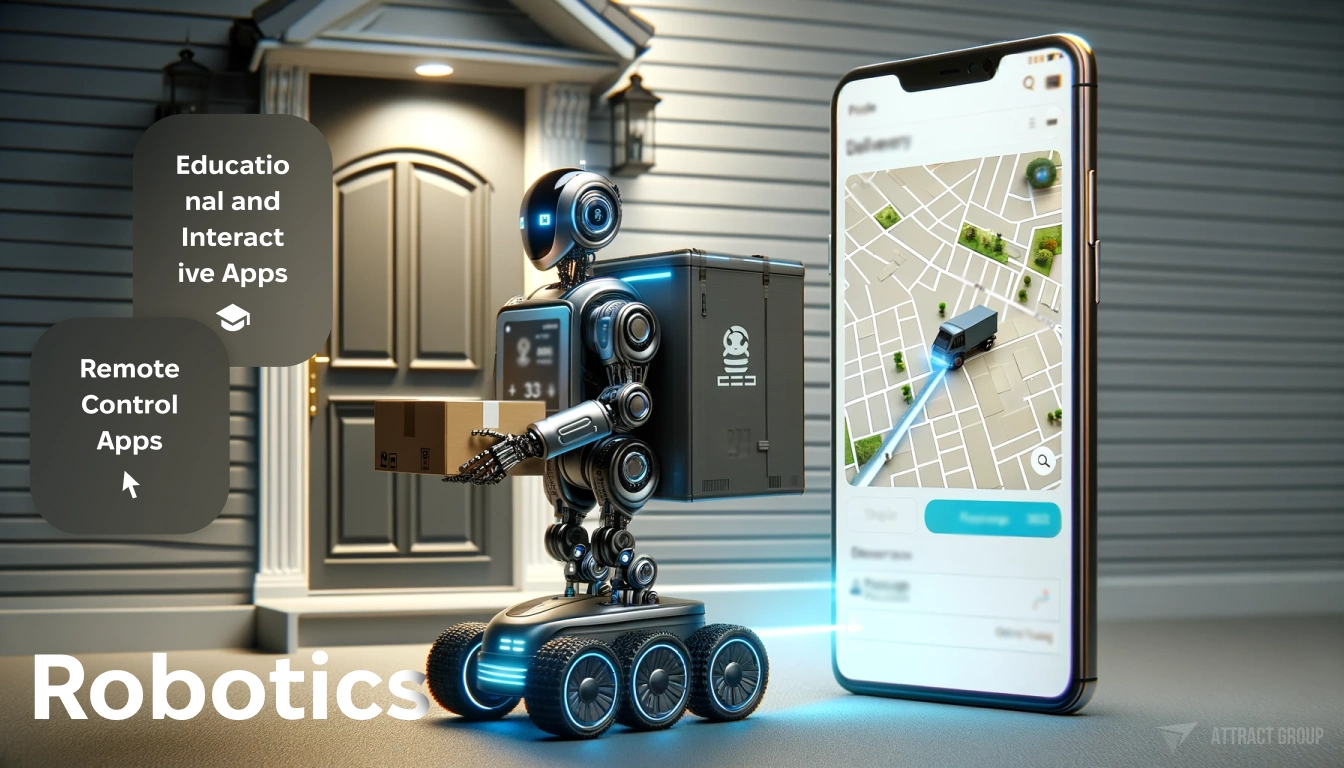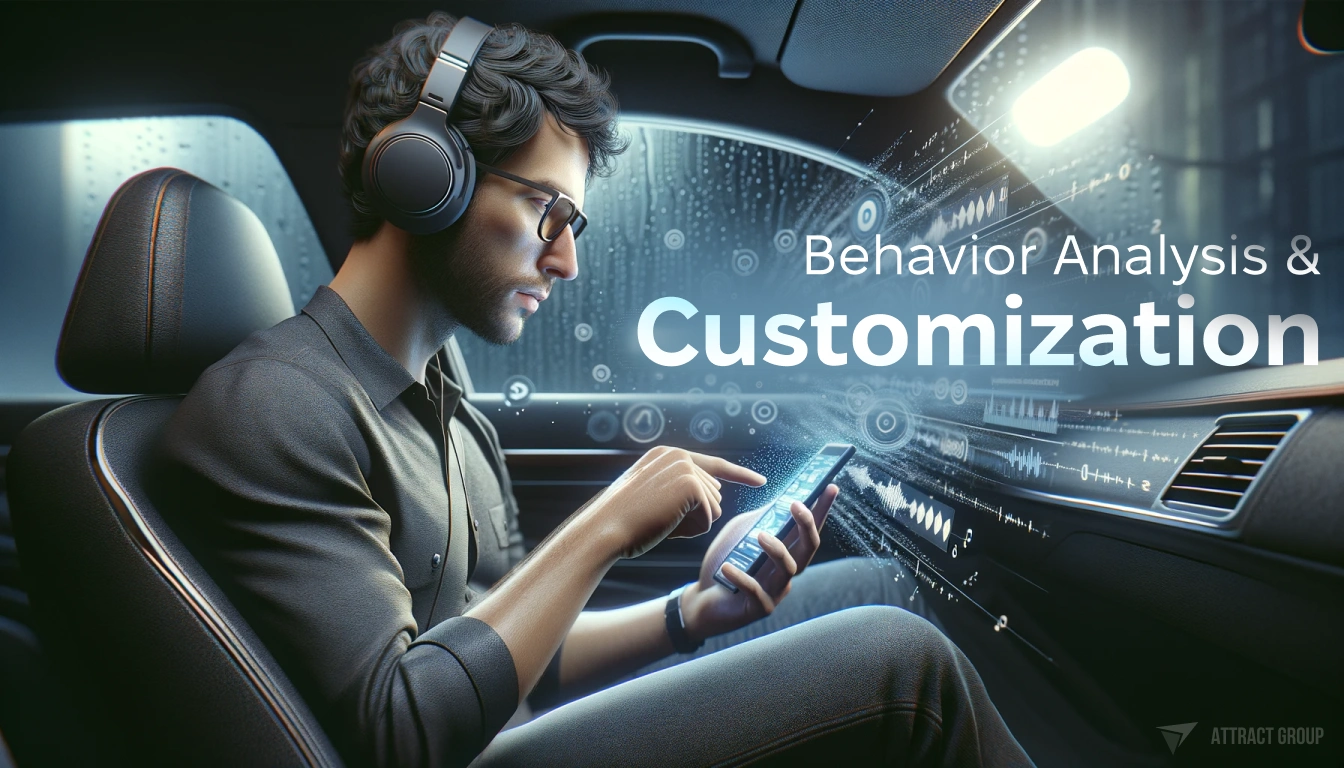Revolutionizing Mobile Apps: AI for Next-Gen App Development
 17 December 2023
17 December 2023The world of mobile app development has undergone a radical transformation, paving the way for an era dominated by Artificial Intelligence (AI). AI App Development is not just a trend; it’s a revolution, shaping the future of mobile applications. From enhancing user experiences to offering cost-effective solutions, AI in mobile app development is setting new benchmarks. This in-depth exploration delves into how AI software is revolutionizing the industry, offering innovative solutions for next-generation apps.
Evolution of Mobile App Development
The journey of mobile app development has been one marked by rapid and transformative change. From the early days of simple, function-focused apps to today’s complex ecosystems powered by advanced technologies, the evolution has been significant. Key milestones in this journey include:
- The Emergence of Smartphones: This era saw the transition from basic mobile phones to smartphones, providing app development platforms for more sophisticated apps.
- The Rise of App Stores: The launch of app stores provided a centralized marketplace for developers to distribute and monetize their apps.
- Integration of Advanced Technologies: Recent years have seen the integration of technologies like AI, AR, VR, and IoT, further expanding the capabilities of mobile apps.
To delve deeper into the evolution of mobile app development, explore our comprehensive guide to mobile development.
Role of AI in Modernizing Mobile App Development
Artificial Intelligence (AI) is reshaping the world of mobile app development. Its integration signifies a shift from traditional development methodologies to more intelligent, responsive, and user-centric models. AI’s role encompasses various dimensions, including:
- Enhanced Personalization: AI algorithms analyze user data to tailor app experiences to individual preferences.
- Improved Efficiency: Automation and machine learning streamline app functionalities, making them more efficient.
- Advanced User Interaction: AI enables more natural user interactions through features like voice recognition and chatbots.

Why AI Mobile App Development is a Game-Changer
The introduction of artificial intelligence in mobile app development has been nothing short of revolutionary. It has transformed the way apps are conceptualized, designed, and experienced by users. Key impacts include:
- Intelligent Functionality: AI’s ability to learn and adapt has led to apps that are more intuitive and capable of complex functions.
- User Engagement: By providing personalized experiences, AI has significantly increased user engagement and retention.
Elevate your app’s capabilities and offer an unmatched user experience
Real-world Examples of AI-driven Mobile Apps
AI has found application in a myriad of real-world scenarios, revolutionizing various sectors. Some notable examples include:
- E-commerce Apps: Utilizing AI for personalized product recommendations and customer service chatbots. For instance, Amazon’s app uses AI for product recommendations based on user behavior.
- Healthcare Apps: Leveraging AI for patient monitoring, diagnostics, and personalized health advice. Apps like Babylon Health use AI to offer medical consultations based on personal medical history and general medical knowledge.
- Navigation Apps: Google Maps and Waze use AI to analyze traffic data and provide real-time, optimal routing suggestions.
- Social Media Apps: Platforms like Instagram and TikTok use AI for content personalization, enhancing user engagement through tailored feeds and suggestions.
The Objectives of Integrating AI into Mobile Apps
Incorporating AI into mobile apps serves several critical objectives, including:
- Solving Complex Problems: AI enables mobile apps to handle complex tasks, such as predictive analytics and decision-making.
- Enhancing User Experience: AI-driven personalization and intelligent interactions significantly elevate the user experience.

Enhancing User Experience Through Personalized Features
Personalization is at the heart of AI integration in mobile apps. This is achieved through:
- Customized Content Delivery: AI’s analysis of user preferences leads to tailored content and recommendations.
- Intuitive User Interfaces: AI helps in designing user interfaces that adapt to individual user behaviors and preferences.
Types of AI Technologies Used in Mobile App Development
The realm of AI in mobile app development encompasses various groundbreaking technologies. Each of these technologies plays a critical role in enhancing app functionality and user experience.
Machine Learning (ML)
Machine Learning stands as a cornerstone in modern AI app development, with its capability to learn from data and improve over time. In the context of mobile apps, ML can be used for a variety of purposes:
- Personalized User Experiences: By analyzing user data, ML algorithms can tailor app experiences, making recommendations or customizing content.
- Predictive Analytics: ML is pivotal in predicting user behaviors and preferences, enabling apps to proactively respond to user needs.
Natural Language Processing (NLP)
NLP allows mobile apps to understand and interpret human language, making interactions more intuitive and natural. This technology is particularly significant in:
- Voice-Activated Assistants: NLP is fundamental in developing AI assistants that can understand and respond to voice commands.
- Chatbots: It enables the creation of intelligent chatbots that can understand and respond to user queries in a conversational manner.
Computer Vision
Computer Vision technology enables mobile apps to interpret and respond to visual information, which can be used in various applications:
- Image and Facial Recognition: Useful in security apps for biometric authentication and in social media apps for photo tagging.
- Augmented Reality (AR): AR apps leverage computer vision to overlay digital information onto the physical world, enhancing user engagement.
Robotics
While not as prevalent as other AI technologies in mobile app development, Robotics finds its application in niche areas:
- Remote Control Apps: These apps can control and interact with physical robots, providing a user-friendly interface for complex operations.
- Educational and Interactive Apps: Robotics technology is employed in educational apps to provide interactive learning experiences.

Incorporating these AI technologies to develop an app not only enhances the functionality and efficiency of apps but also significantly improves user engagement and satisfaction. As AI continues to evolve, its integration into mobile apps will undoubtedly uncover new and innovative applications, further revolutionizing the mobile app development world.
Key Features Enabled by AI in Mobile App Development
Artificial Intelligence has introduced a suite of advanced features in mobile apps, significantly enhancing their capabilities and user interaction. Here are some key features enabled by AI to develop an app:
Image Recognition
Image recognition, powered by AI, allows mobile apps to identify and process images with high accuracy. This feature finds its application in various domains:
- Retail Apps: For scanning products and providing detailed information.
- Healthcare Apps: To analyze medical images for diagnostic purposes.
Facial Recognition
Facial recognition technology offers a secure and convenient way of authentication and personalization in mobile apps:
- Security Apps: For robust biometric authentication.
- Personalized User Experience: Adjusting app settings and recommendations based on the identified user.
Voice Recognition
Voice recognition has transformed how users interact with their mobile devices:
- Voice Commands: Allowing hands-free control and accessibility in apps.
- Speech-to-Text Services: Enhancing convenience in communication and note-taking apps.

Chatbots
AI-powered chatbots in mobile apps provide an interactive and efficient way of customer service:
- Customer Support: Offering 24/7 assistance without the need for human intervention.
- Personal Assistants: Helping users with scheduling, reminders, and information retrieval.
Automated Reasoning
Automated reasoning uses AI to solve problems and make decisions based on available data:
- Decision Making: Assisting in complex scenarios like financial planning and logistics.
- Problem-Solving: Providing solutions based on user queries and app data.
Neural Machine Translation
This feature allows for real-time translation of languages, breaking down communication barriers:
- Translation Apps: Offering quick and accurate language translation.
- Multilingual Support: Enhancing app accessibility and user reach.
Comparison of AI Features in Mobile Apps
| Feature | Traditional App Capabilities | AI-Powered App Capabilities |
|---|---|---|
| Image Recognition | Basic Image Filtering | Advanced Image and Pattern Recognition |
| Facial Recognition | Not Commonly Available | Secure Biometric Authentication |
| Voice Recognition | Basic Voice Commands | Advanced Natural Language Understanding |
| Chatbots | Simple Pre-Programmed Responses | Context-Aware, Intelligent Interactions |
| Automated Reasoning | Limited to Static Algorithms | Dynamic Problem Solving Based on User Data |
| Translation | Basic, Rule-Based Translation | Fluent and Contextual Neural Machine Translation |
How AI Enhances User Experience
The integration of AI in mobile app development significantly elevates the user experience. AI’s capability to personalize and anticipate user needs transforms how users interact with apps.
Gathering and Processing User-Specific Data
AI systems are adept at collecting and analyzing vast amounts of data, which can be used to customize the app experience. This data-driven approach enables apps to deliver content and services that are relevant to each individual user. Key aspects include:
- Behavior Analysis: AI algorithms can track and analyze user behavior patterns, such as app usage times, preferred features, and interaction styles.
- Customization: Based on this analysis, apps can tailor their interfaces, content, and functionalities to match individual preferences.

Impact of AI on User Data Processing
| Aspect | Traditional App | AI-Powered App |
|---|---|---|
| Data Collection | Limited to Basic Usage Data | Extensive, Multi-Dimensional Data Collection |
| Data Analysis | Basic Analysis for General Insights | Advanced Analysis for Deep User Insights |
| Personalization | Static, One-Size-Fits-All Approach | Dynamic, User-Specific Customization |
Augmenting User Experience Through Predictive Analytics
Predictive analytics is another powerful tool in AI’s arsenal, allowing apps to not just react to user actions but to anticipate them:
- Predictive Suggestions: Based on past behavior, AI can predict future actions and offer relevant suggestions, such as recommending a product or a service.
- Proactive Actions: AI can enable apps to take proactive actions, like sending reminders or alerts, based on predicted user needs.
Security Aspects in AI-Powered Mobile Apps
AI technology not only improves functionality and user experience but also significantly boosts the security of mobile apps.
Advanced Security Functions
The incorporation of AI in mobile apps brings advanced security features that are more efficient and robust:
- Sensory Recognition: AI-powered sensory recognition, including fingerprint and facial recognition, offers a more secure and user-friendly form of authentication.
- Gesture Control: Gesture recognition, enabled by AI, provides an additional layer of security and an innovative way to interact with apps.
Enhancing App Security with AI
AI algorithms can constantly monitor app activities, detecting and responding to potential security threats in real-time:
- Anomaly Detection: AI systems can identify unusual activities that might indicate a security breach, such as unauthorized access attempts.
- Continuous Learning: The AI models can learn from these incidents, enhancing their ability to detect and prevent future threats.
AI-Powered Security Enhancements
| Security Feature | Traditional App Security | AI-Enhanced App Security |
|---|---|---|
| Authentication | Password-Based Systems | Biometric and Sensory Recognition |
| Threat Detection | Basic Security Protocols | Advanced Real-Time Anomaly Detection |
| Response to Threats | Manual Intervention Required | Automated, AI-Powered Responses |
Challenges and Ethical Considerations in AI-Powered Mobile App Development
While AI brings numerous benefits to mobile app development, it also poses certain challenges and ethical considerations that need careful attention:
Data Privacy Concerns
One of the most significant challenges in use of AI app development is ensuring the privacy and security of user data. AI systems often require access to vast amounts of personal data to function effectively, raising concerns about data misuse and breaches.
- Privacy Policies: It’s crucial for AI-powered apps to have clear, transparent privacy policies that inform users about how their data is used.
- Data Encryption: Implementing robust encryption methods for data storage and transmission is essential to protect user privacy.

Ethical Dilemmas Related to Artificial Intelligence
AI also brings ethical challenges, particularly in the areas of decision-making and biases:
- Algorithmic Bias: There is a risk of unintentional bias in AI algorithms, based on the data they are trained on.
- Decision Transparency: Ensuring that the decision-making process of AI systems is transparent and understandable to users is essential.
Ethical Considerations in AI App Development
| Ethical Aspect | Description | Mitigation Strategies |
|---|---|---|
| Data Privacy | Concerns over how personal data is used by AI systems. | Robust encryption, clear privacy policies. |
| Algorithmic Bias | The risk of AI algorithms making biased decisions. | Diverse training data, regular algorithm audits. |
| Decision Transparency | Ensuring users understand how AI makes decisions. | Transparent AI processes, user education. |
Case Studies: AI in Action in Mobile Apps
To illustrate the impact of AI in mobile app development, let’s examine some successful case studies:
- AI-Powered Health and Fitness Apps: AI-driven health apps are revolutionizing personal healthcare by providing users with personalized health monitoring and advice. These apps analyze user data to offer tailored exercise routines, dietary suggestions, and even mental health support. An example is MyFitnessPal, which uses AI to give nutritional advice and meal planning based on user data.
- AI in E-commerce Apps: E-commerce apps leverage AI to enhance the shopping experience. Amazon’s app, for example, uses AI for features like personalized product recommendations, AI-driven customer support chatbots, and predictive search functionalities, transforming how consumers shop online.
- AI in Customer Service: Chatbots in apps like Domino’s Pizza delivery service use AI to improve customer interaction, making ordering more efficient and user-friendly.
- Entertainment and Streaming Apps: Netflix uses AI algorithms for personalized movie and show recommendations based on viewing history and preferences.
Future Trends: What to Expect in AI App Development
The future of AI in mobile app development is bright, with several emerging trends poised to further revolutionize this domain:
- Advanced Machine Learning Models: Future AI apps will likely use more sophisticated machine learning models, enabling even more personalized and intuitive user experiences.
- AI-Driven UI/UX Design: AI will play a more significant role in UI/UX design, creating interfaces that are not only more aesthetically pleasing but also more user-friendly.

Conclusion
AI in mobile app development is not just a fleeting trend but a fundamental shift towards more intelligent, responsive, and user-centric applications. The integration of AI technologies like machine learning, natural language processing, and computer vision has opened new possibilities for personalized and efficient mobile apps. As we look to the future, the continued evolution of AI technologies promises to bring even more innovative solutions, shaping the next generation of mobile applications.
Discover our AI and mobile app development solutions and take the first step towards a future-proof app
FAQs
How AI App Development Is It Changing the Mobile App Industry?
AI app development involves integrating artificial intelligence technologies into mobile applications. It’s revolutionizing the industry by enabling apps to provide personalized experiences, intelligent responses, and advanced features like chatbots, image recognition, and predictive analytics, thereby enhancing both functionality and user engagement.
How Does Machine Learning Contribute to AI Mobile App Development?
Machine Learning, a subset of AI, allows apps to learn from user data and behaviors. This contributes to more personalized app experiences, as the app adapts and responds to user preferences and habits. It’s particularly useful in apps that require personalization and predictive functionalities.
Can AI Improve the Security of Mobile Apps?
Absolutely. AI can significantly enhance the security of mobile apps. Technologies like facial recognition and behavioral analysis provide advanced security features, making apps not only more secure but also more convenient to use. AI algorithms can also detect and respond to security threats in real time.
What Are the Benefits of AI-Powered Mobile Apps for Businesses?
AI-powered mobile apps offer numerous benefits for businesses, including enhanced customer engagement, personalized marketing, improved customer service through AI chatbots, and valuable insights from data analysis. These apps can drive sales and increase customer loyalty by providing tailored user experiences.
How Much Does It Cost to Develop an AI-Powered Mobile App?
The cost of developing an AI-powered mobile app varies based on several factors, including the complexity of the AI features, the development platform, the geographic location of the developers, and the overall functionality of the app. Generally, AI app development can be more costly than traditional app development due to the advanced technologies involved.
What Are Some Challenges in AI Mobile App Development?
Challenges in AI mobile app development include ensuring data privacy and security, managing the complexity of AI algorithms, and addressing ethical considerations such as bias in AI decision-making. It’s also crucial to maintain the balance between AI automation and human judgment.
How Do I Choose the Right AI App Development Company?
Choosing the right AI app development company involves considering their expertise in AI technologies, their portfolio of AI-powered apps, their understanding of your business needs, and their ability to provide comprehensive post-development support. Look for companies with a proven track record in AI app development.
What Is the Future of AI in Mobile App Development?
The future of AI in mobile app development looks promising, with advancements like voice recognition, augmented reality, and advanced machine learning models. These technologies will continue to evolve, making apps more intelligent, responsive, and personalized, thereby enriching the user experience further.
How Can AI Enhance User Engagement in Mobile Apps?
AI enhances user engagement by providing personalized content, intuitive interfaces, and interactive features like chatbots. AI-driven analytics can also help in understanding user behavior, allowing developers to fine-tune the app for better engagement and retention.
Are There Any Ethical Concerns with Using AI in Mobile Apps?
Yes, ethical concerns with using AI in mobile apps include issues related to data privacy, algorithmic bias, and transparency. It’s important for developers to address these concerns by implementing fair and transparent AI practices, ensuring user data is handled responsibly, and making AI decisions understandable to users.










